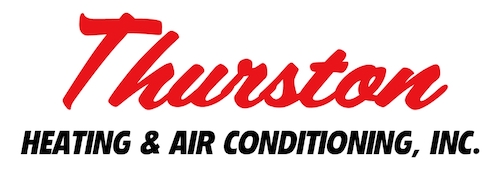Buying your first home is thrilling. You’re probably juggling numerous details about making the right choice. We believe that gaining insight into your potential new HVAC system is crucial. The property’s HVAC system represents a substantial investment and potential source of long-term costs, which is why due diligence helps all first-time homebuyers.
In the following guide, we’ll share seven tips for discovering all there is to know about a home’s heating and cooling system. And if you want a deeper opinion from the pros, feel free to call Thurston Heating & Air Conditioning. Our experienced team can weigh in on your options with industry insights you won’t find elsewhere.
1. What HVAC System Are You Working With?
Start by clarifying what type of HVAC system the home has. Furnaces tend to last longer than air conditioners, and some of the latest types of HVAC equipment like heat pumps can offer average life spans that are even longer. Getting the details on the make and specific model gives you a much better sense of how much routine maintenance it might need.
2. What Is the Current System’s Age?
It’s just as smart to learn how old the HVAC system is when you’re looking at a potential new home. On average, HVAC systems tend to run for about 10-12 years. Having the knowledge of when it was installed helps you prepare for any needed servicing or considerations if it might eventually stop working. Older systems may be more vulnerable to problems, so fiscal planning for a replacement unit could be necessary sooner than you thought.
3. Is the Warranty Active?
Check if the HVAC system is covered by a warranty. If it is, this can assist with maintenance expenses. HVAC warranties typically include parts and labor, but the details in each policy will vary. Make sure you go over any terms you don’t recognize to ensure you understand your coverage and potential out-of-pocket costs.
4. Does the System Have a Documented Maintenance History?
Next, examine the maintenance history of the HVAC system, if such information is available. This service history can reveal if there have been regular problems or how often a tune-up was scheduled. Ask about records for key tasks like filter changes, which means it enjoyed more regularly scheduled tune-ups.
5. Do You Know Its Energy Efficiency Ratings?
Finding a home that features an HVAC system with strong energy efficiency isn’t just smart; it leads to more manageable utility bills and less of an impact on the environment. Look for the seasonal energy efficiency ratio (SEER) ratings for air conditioning along with the annual fuel utilization efficiency (AFUE) for furnaces. Higher SEER ratings mean better cooling across the entire season, while strong AFUE ratings illustrate that the fuel is more effectively burned for useable heat.
6. Did You See Any Problems During Your Inspection?
Even without experience in HVAC systems, you should still inspect the HVAC system yourself. Keep an eye out for signs of problems that might have been overlooked. This might consist of odd sounds, unequal airflow and attempts at concealing any obvious damage.
7. Is an Experienced HVAC Technician Available to Help?
If you’re unsure about the overall state of the HVAC system, it’s never a bad idea to get an assessment and recommendation from trained HVAC technicians. They are skilled at identifying things you might not, like leaks in the refrigerant, wiring issues or damaged ductwork.
A Chat with Thurston Heating & Air Conditioning Helps Take the Stress Out of Your Home-Buying Journey
Choosing your first home is meant to be a joyful event, and Thurston Heating & Air Conditioning wants to ensure it stays that way. Get in touch with us at 308-270-3765. We can discuss how our HVAC services ease your mind, giving you what you need to make an offer with confidence.
